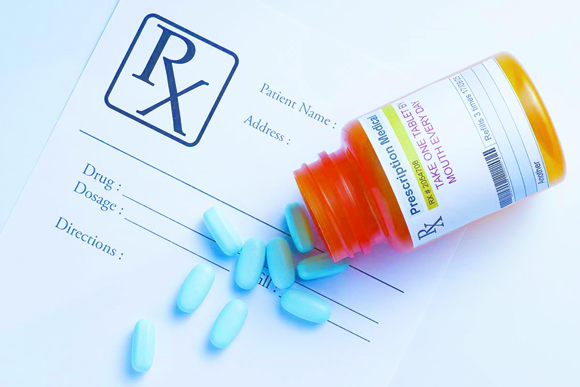ELLY GRIMM
• Leader & Times
The debate surrounding prescription drug prices continues and recently, the U.S. Department of Health and Human Services (HHS) announced some good news with just that.
Friday, HHS, through the Centers for Medicare & Medicaid Services (CMS), announced some Medicare enrollees will pay less for 64 drugs available through Medicare Part B. The drugs will have a lowered Part B coinsurance rate from Jan. 1, 2025 through March 31, 2025, since drug companies raised prices for each of these 64 drugs faster than the rate of inflation, according to a release from HHS.
“Over 853,000 people with Medicare use these drugs annually to treat conditions such as cancer, osteoporosis, and substance use disorder,” the HHS release noted. “Since April 1, 2023, people with Medicare have seen savings on over 120 drugs thanks to Inflation Reduction Act’s Medicare Prescription Drug Inflation Rebate Program.”
“The Inflation Reduction Act is working to lower prescription drug costs for millions of people,” HHS Secretary Xavier Becerra noted in the release. “By discouraging drug companies from raising their prices faster than inflation, we are keeping prices affordable for the people with Medicare who rely on these drugs to live healthier lives. The law has also capped out-of-pocket costs and finally allows Medicare the right to negotiate lower prices. It is a success story for the American people.”
Other leaders also praised the work.
“For too long, Americans have faced the difficult choice of paying for their prescription drugs and being able to afford other basic needs,” White House Domestic Policy Advisor Neera Tanden noted in the HHS release. “Under the Inflation Reduction Act, companies that increase the price of prescription drugs faster than inflation must provide a rebate to Medicare. That means lower drug costs, and more money back into the pockets of Americans with Medicare. Because of the Inflation Reduction Act, which established the Medicare Prescription Drug Inflation Rebate Program, some people with Medicare who use these drugs in the first quarter of 2025 may save between $1 and $10,818 per day. For example, Atgam treats a rare blood condition known as aplastic anemia. A beneficiary taking Atgam may save as much as $12,728 from January 1, 2025, through March 31, 2025, depending on their coverage and course of treatment.”
“The Inflation Reduction Act is lowering prescription drug costs so that people can access the medications they need,” CMS Administrator Chiquita Brooks-LaSure noted in the HHS release. “As we head into 2025, people with Medicare will feel substantial relief from high drug prices. In addition to lower cost-sharing for certain drugs whose prices have increased above the rate of inflation, people with Medicare prescription drug coverage will have their annual out-of-pocket costs capped at $2,000 for the first time. This will be life-changing for people who have been living with high drug costs.”
The Medicare Prescription Drug Inflation Rebate Program is just one of the Inflation Reduction Act’s prescription drug provisions aimed at lowering drug costs. Another major cost-savings benefit begins Jan. 1, 2025, when all people with Medicare Part D will benefit from a $2,000 cap on annual out-of-pocket prescription drug costs in 2025.
“This provision will lead to the biggest individual savings yet – with Part D enrollees expected to save billions in out-of-pocket costs. Enabling seniors to save thousands on prescriptions and instead spend more money on other pursuits,” the HHS release noted. “Also starting Jan. 1, people with Medicare Part D can choose to spread out their out-of-pocket prescription drug costs throughout the calendar year, allowing for more predictable, lower monthly costs instead of paying all at once at the pharmacy. The Inflation Reduction Act also requires drug companies to pay rebates to Medicare when prices increase faster than the rate of inflation for certain drugs. CMS intends to begin invoicing prescription drug companies for Part B inflation rebates owed to Medicare no later than Sept. 30, 2025, and Part D inflation rebates no later than Dec. 31, 2025. The rebate amounts paid by drug companies will be deposited in the Federal Supplementary Medical Insurance Trust Fund, which will help ensure the long-term sustainability of the Medicare program for future generations.”








